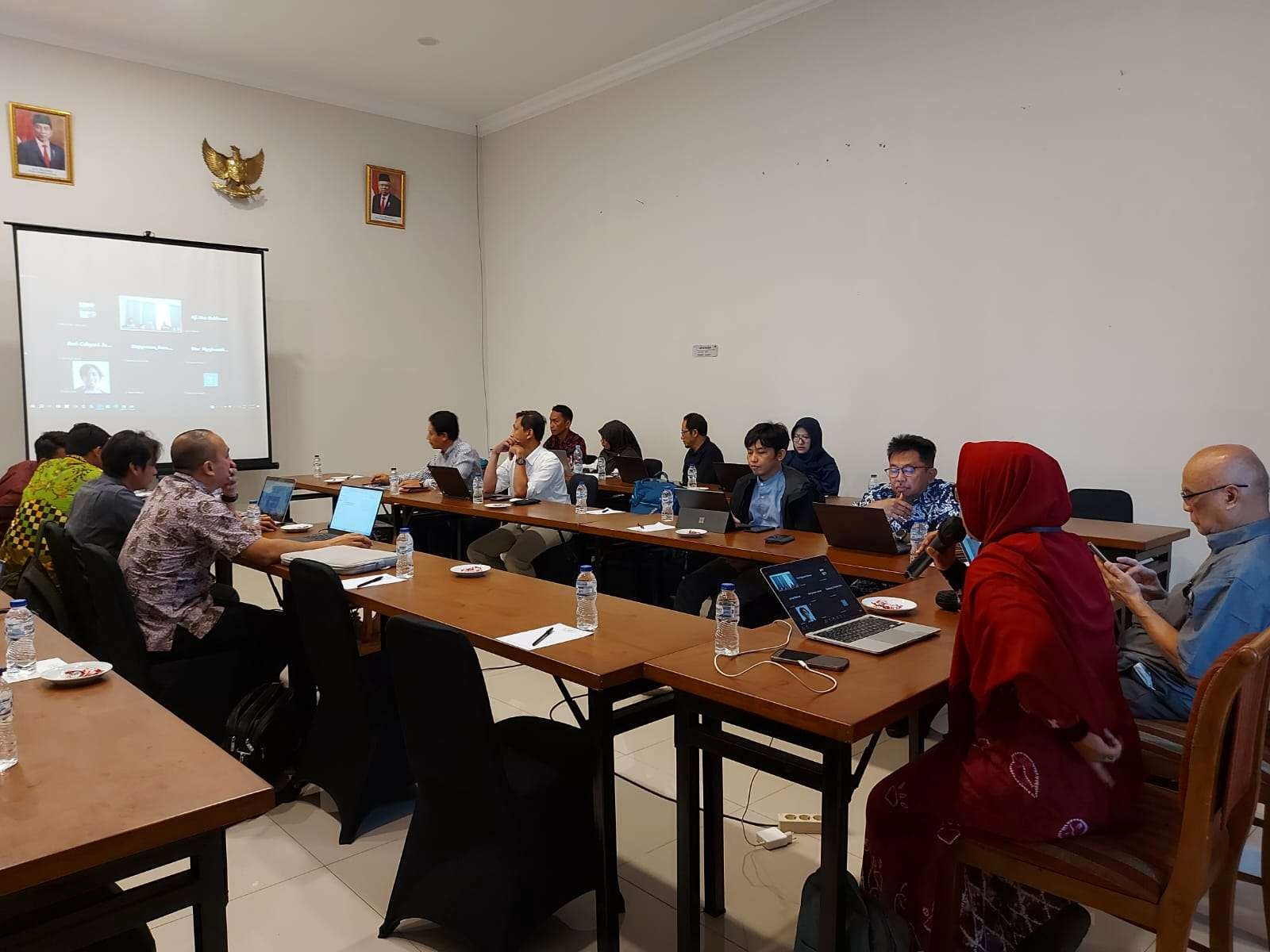
Since 2022, FORCLIME has been supporting Bappenas as it completes a study that is being aimed at optimizing the utilization of the forest bioeconomy within Indonesia. The initial concept that underpins forest bioeconomy development is outlined in the draft version of Indonesia's National Long-Term Development Plan (RPJPN) for 2025-2045. To refine this concept into a five-year planning document or a National Medium-Term Development Plan (RPJMN), Bappenas is planning to develop a roadmap for forest bioeconomy development within Indonesia. To achieve this, an FGD was recently held with various stakeholders that are directly involved in the development of the forest bioeconomy industry, including the Ministry of Environment and Forestry (MoEF) and the Indonesian Chamber of Commerce and Industry (Kadin).
The FGD took place on Thursday, 6 July 2023 in Bogor and was opened by Dr. Nur Hygiawati Rahayu, ST, MSc., the Director of Forestry and Conservation of Water Resources at Bappenas. In her opening remarks, Dr. Nur Hygiawati highlighted the framework for the forest bioeconomy study and the importance of downstream forestry businesses in terms of enhancing the added value of forest products. The opening session was followed by a presentation that was given by Dr. Tatang Hernas Soerawidjaja from the Bandung Institute of Technology, who discussed the potential development of plant-based oils within the Indonesian bioeconomy.
The first speaker from the MoEF was Dr. Riva Rovani, S.Hut., M.Agr. from the Directorate of Forest Resources Inventory and Monitoring. Dr. Riva presented forest data that had been monitored by MoEF, including data on land and forest cover, forest potential, vegetation distribution and carbon stock potential. The periodically monitored data provided by MoEF will hopefully serve as the basis for the determination of forest bioeconomy development potential within Indonesia.
The next speaker was Mr. Hasanuddin, S.Hut., M.Hum. from the Directorate of Forest Processing and Marketing Development at the MoEF. During his address, Mr. Hasanuddin discussed multi-sectoral forestry business processes and the importance of linking the upstream and downstream sectors in order to build a robust industry. The Directorate-General of Sustainable Forest Management at the MoEF has been facilitating forestry-based micro-, small- and medium-scale enterprises (MSMEs) in the development of the Timber Legality Verification System (SVLK) and support for downstreaming within the forestry sector. Moreover, the hope is that in the future, carbon derivative regulations will also be developed that extend to the marketplace.
Representing Kadin was Mr. Silverius Oscar Unggul, S.P., M.M., the Vice-Chairman of the Environment and Forestry Division, who discussed Kadin's various efforts to promote Regenerative Forestry Business (RFB) that involve the private sector. Kadin is planning to establish a pilot project in the future that covers an area of 200,000 hectares to support various forestry businesses, including the development of the bioeconomy.
Among other topics that were also discussed during the FGD was the importance of establishing a comprehensive forest potential database in Indonesia based on the country’s regions and their resources (which include resins and latex). This database will then be subsequently used in order to develop policies and determine suitable industrial scales. In addition, the importance of market demand assessments was also emphasized during the meeting, as such assessments will ensure that bioeconomy products are appropriately targeted and provide added value in relation to any investments that are made.
For more information, please contact:
Nurdita Rahmadani, Junior Advisor for Monitoring, Evaluation and Reporting
Pipin Permadi, Senior Advisor and Liaison Officer






